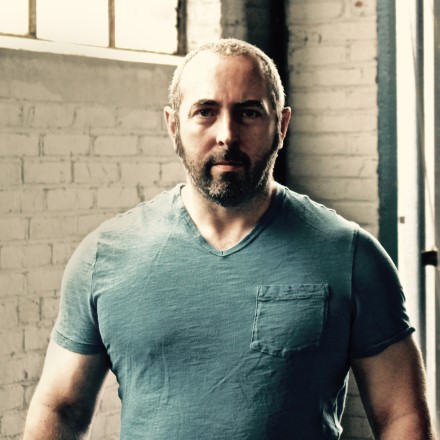N.B. This is not a blog about politics, immigration policies etc. It is about mental health issues, terrorism, and security. It is intended to spark debate, and conversation, and a search for real solutions to these problems, and is not intended to be divisive.
Late last night, a 27-year old Syrian refugee, detonated a bomb he was carrying in a backpack, outside a music festival in Ansbach, Bavaria (Germany). This was the third attack, against the public, that Germany has faced within a week; a 17-year old had attacked Chinese tourists on a train with an axe and a machete, and an 18-year old went on a rampage killing spree outside a McDonald’s restaurant in Munich, shooting and killing nine (7 of whom were teenagers). All three were Muslims, two of them immigrants from Syria. At first glance, it would seem that these three separate acts, were linked by an Islamist agenda, and whilst this may still prove to be the case, it seems that these three killers had independent agendas and motives, and histories that may suggest that their primary motivations (it may be later revealed that all three were IS sympathizers however that doesn’t be default mean that these were IS inspired attacks), may be more individualistic, with the timings around the attacks, more coincidental than planned.
It appears that Ali David Sonboly (a dual Iranian-German national), who shot and killed the teenagers outside of the McDonald’s, had a long history of being fascinated by active shooter incidents; investigators found masses of articles and material concerning mass and rampage killings at his home. It also appears that the timing of his own killing spree, marked the five-year anniversary of the massacre in Norway, where Anders Breivik, a far-right extremist killed 77, attendees of a Workers Youth League summer camp. Ali David Sonboly, was mentally unstable, and had been planning the event for over a year. The Syrian refugee, who detonated the bomb last night, had twice before tried to commit suicide – and had spent time in a psychiatric ward – he was about to be deported to Bulgaria, having had his asylum application denied. The fact that he didn’t even have a ticket for the festival he was trying to get into, suggests an extreme lack of planning – which fortunately meant the impact of his attack was significantly lessened than if he’d managed to get in, and make it to a crowded area, etc. Whether or not these two individuals had any ties to terrorist organizations, it is more likely that mental health issues, had a more prominent role to play than radicalization, etc., and yet it would be all too easy to bundle these two events up with others and play the terrorism card. There is a very real security danger in doing this, if we are to be effective in preventing both further acts of terror, as well as hate crimes.
I have long argued against security and safety which is specific rather than general, that focuses on particular threats, whilst ignoring or discounting others, because at face value they don’t seem to carry the same risk. There is a very real danger from this in the current climate, where Syrian immigration is concerned. If the focus is solely on screening, identifying and denying terrorists and would-be terrorists, we may put all our attention into dealing with one threat, whilst ignoring another potential one; the mental health issues that come from growing up in a war zone and living your life as a refugee – especially if you are a child or a teenager. We may be so concerned with the dangers of radicalization, that we fail to take into account and treat, those who have serious mental and emotional health issues; those who will not grow up to be terrorists, but will become active shooters, proponents and practitioners of hate crimes, etc. Terrorist attacks by Syrian immigrants are a real threat, and need our attention, but at the same time, we need to put resources into helping those that have come from traumatic backgrounds, and who carry the scars and experiences that may in later years, propel them towards violence against the communities of which they are now part.
Ali David Sonboly, appears to have targeted teenagers (just like Anders Breivik), and whether he wanted his killing spree to appear part of a political or religious crusade or not, it is more likely that his motivations were personal; in all likelihood he wanted revenge on a group/population that had either openly mocked him, excluded him, or similar (in 2012 he’d been the victim of “bodily injuries” in an incident involving young people) – just like the Columbine Killers. Whether he believed the reason for this was down to his ethnicity/religious background or not, and in turn this lead him to sympathize with Islamist extremists, is unclear, however his spree killing seems more like a copy-cat hate crime than an act of terror. Mental health issues were a more important factor than radicalization – this does not seem to be the “traditional” story of a well-adjusted, middle class, individual who became devoutly religious, and was coerced into becoming a Jihadist. The Syrian refugee, who had previously tried to commit suicide twice, had severe mental health issues. Whether these arose from his experiences as a refugee from a war zone, or were deeper rooted, existing before the conflict in Syria began, is unclear and may never be known. Whether he was assisted in some way by a terrorist organization is still unclear, however it is evident, that depression, anxiety and other mental health issues probably had a more significant part to play, than religious fundamentalism.
Some will argue that we shouldn’t be admitting any refugees into any country. That the risk of letting terrorists in is to great, that we don’t have the resources to treat those with mental health issues, and so we shouldn’t become an incubator for hate crimes, etc. The truth is, from a security perspective, this is a futile argument; people will cross borders, whether legally or illegally, and will become part of our communities. Many of these individuals will have been exposed to and suffered traumatic events, and to deny them the services that could help them cope and overcome these, may mean that not only are we creating individuals who are susceptible to radicalization, but those who will express their anger, hate (possibly towards themselves and others) and depression, through violent acts (the same would be true of denying these services of our own mentally ill citizens). We may then, once again, miss the point and label these as acts of terrorism, and once again fail to deal with the underlying causes.
Share:

Gershon Ben Keren
2.8K FollowersGershon Ben Keren, is a criminologist, security consultant and Krav Maga Instructor (5th Degree Black Belt) who completed his instructor training in Israel. He has written three books on Krav Maga and was a 2010 inductee into the Museum of Israeli Martial Arts.
Click here to learn more.
